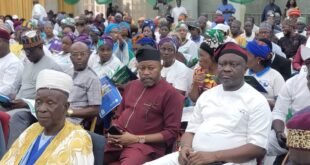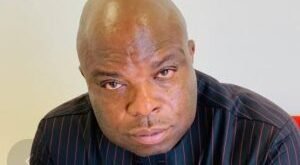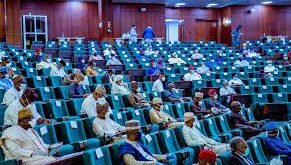Prince Charles Dickson, Ph.D
In Lagos, where the air has a flavor of diesel and ambition fumes, there was a federal teaching hospital: a dilapidated monument to the frayed promises of a nation. Its doors went to rusty hinges and the front sign, once declaring it a “center of excellence”, was faded to a ghostly whisper. This is where hope came to duel with despair.
My friend Adora, a school teacher with his hands callose from classification floors and rubbing the floors, arrived here one morning in suffocation with his son Emeka. The boy, just ten years old, had a laugh that could drown the noise of the city. But now his smile was disappeared, replaced by a jolt as he tightened his abdomen. “Appendicite,” said the doctor. “Surgery. Tomorrow.”
The surgeon’s office was a room of the size of a wardrobe with a trembling bulb. He handed over to Adora a list: scanning of magnetic resonance imaging, blood panels, surgical shovels, gloves, syringes, antiseptic. “Buy everything,” he said flat. “Our machines haven’t worked for months.”
We fixed the card. “The hospital has no gloves?” I sitted. Adora shook his head. “This is Nigeria. Miracles also require a busparella.”
We have become brushes. Magnetic resonance imaging was performed in a clinic five minutes away, its plastered walls with announcements for prenatal vitamins and economic data plans. The coach smiled as he took Adora’s money. “You are lucky we are here,” he said. “The magnetic resonance imaging of the Teacher Hospital died last year. The government promised a new one, but …” he tightened in the back. “Na Who dey Alive are you going to celebrate Christmas?”
Pharmacies have chosen us. A pack of gloves costs ₦ 5,000, more than Adora earned in two days. The syringes were sold individually, like sweets. “Why not steal?” I mumbled, sweating under the Lagos sun. She looked. “This is for Emeka. We do it well.”
The hospital department was a crypt. The fluorescent lights buzzed like angry flies. Beds flanked the room, separated by curtains eaten by the moth. Emeka’s bed had no cushions. The mattress brought the color of the old nightmares.
An nurse launched Adora a bucket and a rag. “Clean it alone,” he said. “The detergents … well.” His voice is over. We understand. The detergents had not been paid for months. They had vanished, like the dignity of the hospital.
Adora knelt. He rubbed the setting of the bed, the walls, the floor, its prayers that merge with the squeak of wet cloth. I took water from a bathroom at the bottom of the corridor: a room that reduced ammonia, the sink suffocated with cobwebs. When I returned, he was scraping the black mold from the window sill. “Here’s how infections spread,” he murmured. “Here’s how people die.”
Families of other patients have moved away, with their own dry. A lashed man in a luminous shirt approached his wife’s bed; A teenager girl dried flied from the face of her little brother. Nobody spoke. The rhythm of washing has become our shared language.
That night, I put a young doctor who smoked outside. “Why does it have to be like that?” I asked.
Has inhaled deeply. “Do you think we like it? We ask for supplies. We reuse the sutures. Last month, a man died because we finished oxygen.” His voice broke. “We are trained to save human lives, not to … dig tombs.”
He exhausted the cigarette in the dark. “But the son of your friend? We will fight for him. We always do it.”
Emeka trembled while Adora caressed her hair. “Will he hurt, mom?”
He forced a smile. “You will sleep. And when you wake you up, I will buy you Suya and Fanta.”
But when he moved away, he collapsed in the corridor, screaming in the fists. “Why? Why do I have to choose between the tax and rent of a surgeon? Why do I have to clean the dirt that could kill him?”
I kept it while the hospital moaned around us: a symphony of cough, crying and the hum of a lone generator who fights to keep the lights on.
The dawn came, pale and humid. The surgeons arrived: three of them, their thin scrubs from too many washes. Emeka bounced, his small hand clinging to Adora until the doors swallow him.
We waited. Hours dripped by a fluid IV. A woman through the corridor moaned while a sheet was pulled on her husband’s face. The cry of a newborn pierced the air, acute with life.
In the end the main surgeon emerged, his mask dangled like a broken promise. “He’s fine,” he said.
Adora sank on their knees, sobbing. The doctor hesitated, then he added: “Your supplies … the gloves … made the difference”. His shame remained unchanged in the air. A doctor who thanks a mother for the purchase of gloves.
Recovery was a battle. Emeka’s engraving exuded. “Infection”, the nurse warned. Adoora bought antibiotics from a “pharmacy” in a kiosk along the way, praying that they were not counterfeit. He cleaned his wound with vodka when the antiseptics run out.
The department has never slept. The rats hurried under the beds. Current interruptions immersed us in darkness and generators, when they scared at life, played like dying men. One night, an elderly patient went through the breath, his family screamed for a fan that did not exist. He died before the arrival of the nurse.
I started to notice the quiet rebellions of the staff. An nurse hid in clean bandages from his cousin clinic. A janitor (who had not been paid for weeks) has still swept away the Icu, murmuring, “God will reward me”. Surgeons collected money to buy painkillers.
“Why stay?” I asked the young doctor.
He smiled bitterly. “If we leave, who has remained?”
On the day of discharge, Adora canceled the department one last time. A new mother looked, her baby changing down in Ankara fabric. “Thanks,” he whispered.
While we left, I looked back. The walls had still peeled. The floors are still broken. But for a moment, the department collected, not for bleach, but by the stubborn love of those who refused to let the darkness win.
Epilogue: laughter
Emeka’s laughter returned first: such a bright sound that seemed to make the cockroaches that flock to the shadows jump. Adora has sold his jewels to fix the bills. We never talked about the cost.
Returning home, we passed the didactic hospital. Its doors were still trampled on. His sign has still lied. But I thought of the trembling hands of the surgeon, the stolen bandages of the nurse, to the unpaid work of the janitor.
The Nigeria health system is a corpse collected by the vultures. But are that people? They are alchemists, who turn despair in hope, a scalpel, a rag, a provocative laugh at a time.
And in that truth, there is a glimmer of light – a lot to continue to rub – Nigeria could win!
–
Post views:
64
 JamzNG Latest News, Gist, Entertainment in Nigeria
JamzNG Latest News, Gist, Entertainment in Nigeria









